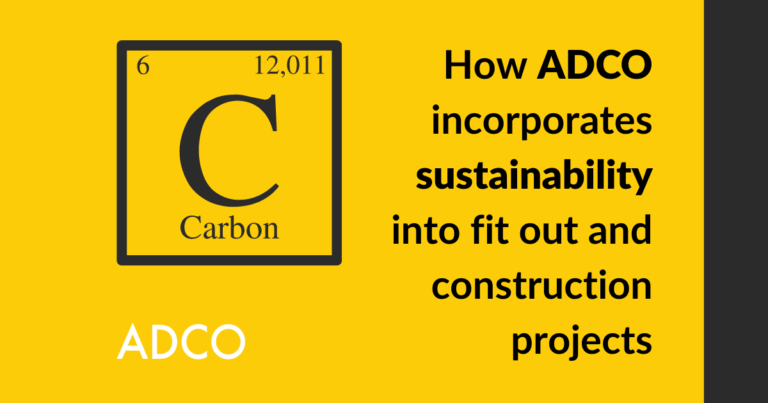The construction industry consumes a lot of resources, creating a whole lot of pollution in the process. Even with the increase in environmental awareness, particularly in the last 20 years, this sector of ours still accounts for an incredible 37% of global carbon emissions.
With the effects of climate change becoming more evident, and the finite nature of the resources we use, construction companies need to look at ways of reducing the impact their work has on the environment. But this can’t only be limited to changing and improving how buildings are constructed. Sustainability is implemented at every level in our business.
Improving sustainability in construction
More sustainable construction focuses on using renewable and recyclable materials in the building of new structures, and balancing that with reducing the amount of waste produced and energy consumed during construction.
It also means including elements in the building’s design to lessen its environmental impacts over the course of its entire lifespan: more effective insulation to prevent heat loss; solar panels that will reduce reliance on fossil fuels; building materials that will last longer than the ones traditionally used. The list goes on.
There is the use of heavy machinery in buildings to be considered too, with large excavators and cranes relying predominantly on fossil fuels to power them. And what about where the materials to be used are being manufactured? The fewer materials and the shorter the distance from the factory or warehouse to the construction site, the lower the carbon emissions too.
A sustainable building makes for a more healthier and comfortable work environment
Well-ventilated buildings made with materials consisting of fewer chemicals deliver better indoor air quality and create less harmful emissions.
The more natural light there is within a building increases the comfort and enjoyment of the people within it, in addition to reducing the amount of energy expended on lighting. The same goes for heating systems that maintain the right indoor temperature from season to season via passive design or building monitoring systems
These are sustainability elements we have incorporated into the fit-out of our own offices in Dublin 12.
Having a sustainable attitude to waste management
Waste is an unavoidable by-product of construction no matter how sustainable the materials being used are. But that waste can be disposed of in an environmentally responsible way. Timber, concrete, gravel, glass, wiring, pipework: it can all be recycled or reused for other construction projects.
Effective waste management is extremely important to us at ADCO. We’ve built up a wealth of knowledge, capabilities and competencies in appropriate and legally compliant waste management procedures and protocols. Our expertise spans ensuring safe operation of our teams onsite to managing and policing other contractors and vendors onsite, ensuring full site adherence to compliant waste management policies and procedures.
The ADCO Environmental Commitment
At ADCO, we are continually seeking ways to reduce pollution and minimise the impacts of our office and site-based activities on the environment.
As a main contractor and a responsible member of the business community, we believe the correct balance needs to be struck between building high-quality, desirable developments and protecting the environment.
So we have developed an Environmental Policy Document, and put in place Environmental Operating Procedures, that help to keep us on a true course to reaching this objective. ADCO encourages the active cooperation of all members of staff to ensure the effective and responsible delivery of services to our clients.
The elements of our Environmental Commitment:
- Prevent pollution and waste
- Ensure efficient use of materials and energy
- Comply with environmental legal requirements and emission standards
- Review our activities and their impact on the environment
- Set targets for the reduction of environment impacts
- Implement an environmental management planning procedure for site-based activities to ensure management and control (where within our control)
- Integrate such control into our existing management system for quality, safety and health
- Expect our subcontractors to comply with this policy and meet environmental requirements
- Provide the necessary awareness and training to enable staff to contribute to policy implementation
- Maintain a policy for continuous improvement of the environmental management system and performance
- Communicate this policy to all employees and subcontractors
If you’re looking for a contractor on your next project that has a proactive attitude to sustainability literally built into their way of doing business and working with clients, contact the team at ADCO today to find out more.

